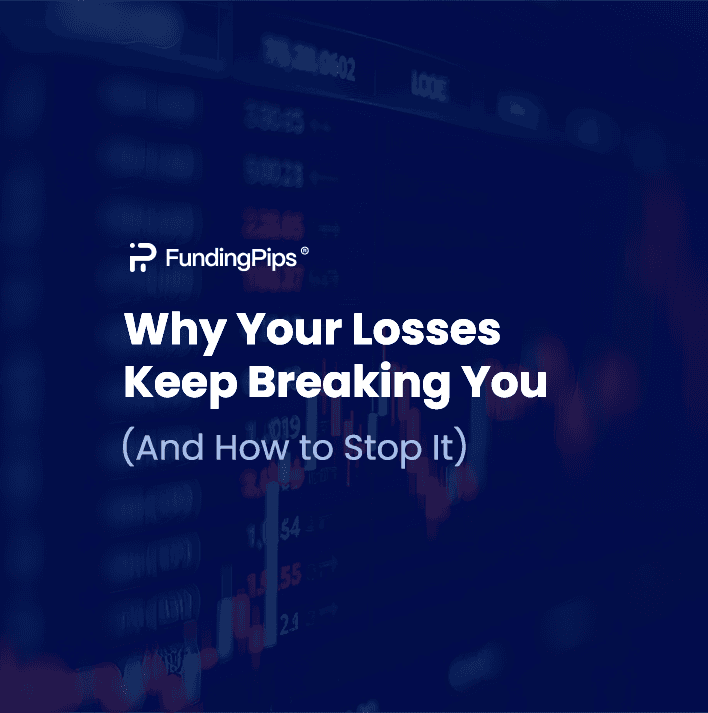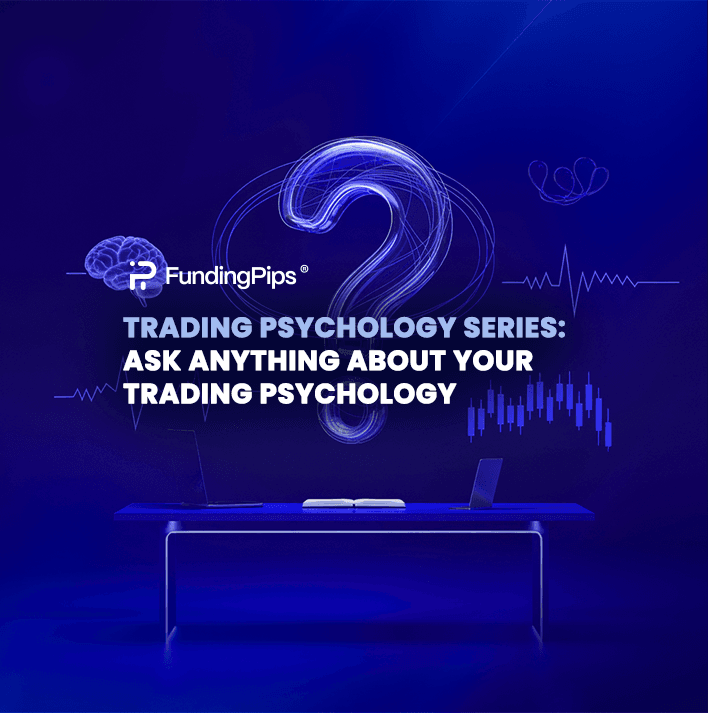Trading Psychology Series: Mastering Emotional Resilience with Stoicism
2/13/2025, 2:26:57 PM
This session we explored how the ancient philosophy of the great Greek thinkers can help traders master emotional control, make rational decisions, and cultivate resilience in the face of market uncertainty.

Trading Psychology Series: Mastering Emotional Resilience with Stoicism
Introduction
In yet another insightful session of our Trading Psychology Series, we took a deep dive into an unconventional yet highly effective approach to trading mindset - Stoicism. This session explored how the ancient philosophy of the great Greek thinkers can help traders master emotional control, make rational decisions, and cultivate resilience in the face of market uncertainty.
We also gave away four 10K Challenge Accounts to participants who demonstrated exceptional engagement and understanding of trading psychology principles. More giveaways and interactive sessions will follow, so stay tuned!
The Three Pillars of Trading Success
Before diving into Stoicism, we reiterated the essential three pillars of successful trading:
Trading Psychology: The ability to maintain emotional control and make rational decisions.
Technical Analysis: A data-driven approach to identifying high-probability trades.
Risk Management: Ensuring capital preservation and long-term sustainability.
While all three are crucial, this session focused on mastering emotional control and decision-making processes - a core tenet of Stoicism.
Stoicism in Trading: The Power of Inner Control
Stoicism is a 3rd-century BC philosophy that emphasises inner strength, rational thinking, and self-discipline. When applied to trading, it shifts the focus from external circumstances (market conditions, news, volatility) to internal control (our mindset, emotions, and reactions).
Key Stoic Principles for Traders:
Control What You Can, Let Go of What You Can’t "You have power over your mind - not outside events. Realize this, and you will find strength." —Marcus Aurelius
Traders cannot control market direction, volatility, or external news.
Traders can control their mindset, execution, and risk management.
Embrace Uncertainty
The market is inherently unpredictable.
As a trader, you must develop mental toughness to accept uncertainty without emotional reactions.
Decisions Over Outcomes
A single loss does not define a trader; it's simply a data point.
Evaluate trades based on execution and adherence to strategy - not just the result.
Emotional Detachment
Recognise emotions like fear, greed, and frustration but do not act on them.
Implement strategies like stepping away from charts, journaling emotions, and practicing mindfulness.
Practical Trading Applications of Stoicism
1. Pre-mortem Strategy: Prepare for the Worst
Rather than reflecting on losses after they happen (postmortem), the Stoic approach encourages anticipating challenges before they occur.
Ask yourself:
What if I hit my daily loss limit?
What if I go on a losing streak?
What if I get stopped out multiple times?
By preparing actionable solutions in advance, you reduce the likelihood of panic trading and impulsive decisions.
2. Risk Management as a Stoic Practice
Set daily, weekly, and monthly loss limits.
Understand that losses are a cost of doing business - not personal failures.
Detach from the emotional impact of losses by focusing on statistical probabilities.
3. Trade Execution: Rational, Not Emotional
Before taking a trade, ask:
Does this align with my strategy?
Am I executing from logic or emotion?
Can my account and my mindset handle a potential loss?
By consistently reinforcing these checks, you develop the habit of making conscious, rational trading decisions.
Lessons from the Live Session: Q&A Highlights
How Can I Stop Exiting Trades Too Early?
Overexposure to charts leads to emotional micromanagement.
Set your take-profit levels based on logical analysis, then step away.
Remind yourself that watching the trade doesn’t change its outcome.
How Do I Avoid Overconfidence After a Winning Streak?
After a win, assume your next trade will be a loss - this prevents reckless behaviour.
Stick to pre-set risk limits regardless of recent performance.
Avoid revenge trading or increasing position size impulsively.
What’s the Best Way to Handle Market Uncertainty?
Accept that you cannot predict every outcome.
Develop a rational, rule-based system and trust it.
Understand that discipline over time leads to long-term success.
Final Takeaways: Becoming a Stoic Trader
Trading is a game of probabilities - not perfection.
Losses are just data points - not personal failures.
Your edge is in your ability to stay disciplined when emotions run high.
Mastering stoic principles leads to long-term profitability.
Congratulations to Our 10K Challenge Account Winners! 🎉
@BrisaEloi @Hulkk @PlayWithRamam @ Winnie38
Winners, please check your emails for further instructions on claiming your accounts!
What’s Next?
📅 Next Live Trading Psychology Session: Every Friday at 4 PM Dubai Time 📍 Join the Discord Trading Psychology Corner: Mondays at 6 PM Dubai Time 📖 Read Our Weekly Blog Digests & Resources
💡 Next Topic: How to overcome GREED as a Trader 🎥 Trading Psychology Series: HOW Ancient Stoic Philosophy Will Transform Your Trading Forever : https://www.youtube.com/live/IgTUwVSL-Yw?feature=shared


